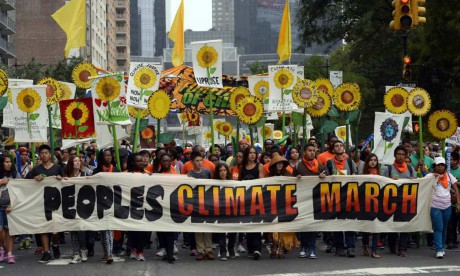This summer, Pope Francis plans to release an encyclical letter in which he will address environmental issues, and very likely climate change.
His statement will have a profound impact on the public debate. For one, it will elevate the spiritual, moral and religious dimensions of the issue.
Calling on people to protect the global climate because it is sacred, both for its own God-given value and for the life and dignity of all humankind, not just the affluent few, will create far more personal commitment than a government call for action on economic grounds or an activist’s call on environmental grounds.
Making a case on theological grounds builds on long-standing arguments in the Catholic catechism that environmental degradation is a violation of the seventh commandment (Thou shalt not steal) as it involves theft from future generations and the poor.
Against such a moral backdrop, the very call to “make the business case to protect the global climate” – a common tactic to argue for action on climate change – seems rather absurd.
The pope’s statement will shift the tenor of the public and political conversation in needed ways.
Transcending political tribes
But perhaps even more important than the content of the message is the messenger: the pope.
The public debate over climate change today has been caught up in the so-called “culture wars.” The debate is less about carbon dioxide and greenhouse gas models than it is about opposing values and worldviews.
In the United States, those opposing cultural worldviews map onto our partisan political system – the majority of liberal Democrats believe in climate change, the majority of conservative Republicans do not.
People of either party give greater weight to evidence and arguments that support pre-existing beliefs and expend disproportionate energy trying to refute views or arguments that are contrary to those beliefs. Continue reading
Sources
- The Conversation
- Image: Science of Us
